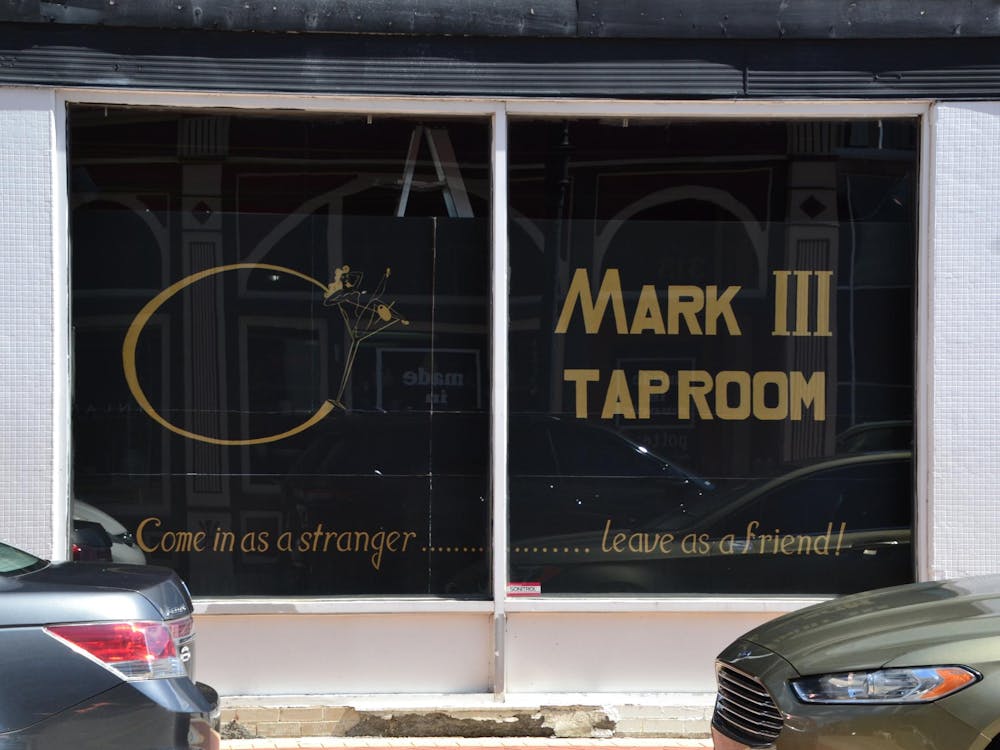Hannah Schneider is a senior communications major and writes 'Schneid Comments' for the Daily News. Her views do not necessarily agree with those of the newspaper. Write to Hannah at hmschneider@bsu.edu.
"What is the precise moment, in the life of a country, when tyranny takes hold? It rarely happens in an instant; it arrives like twilight, and, at first, the eyes adjust." –Evan Osnos from the New Yorker
I don’t want to write this.
It’s not that I have been staring at a blank computer screen watching a cursor blink like I am procrastinating on an essay for class.
It is more about the fact that weeks ago, I packed up in on myself. Folded right up like a cardboard box and nestled in my closet amongst my sweaters.
I hid because I lost. And yet, it’s not about me. This is about so much more than any one of us can grasp, right or left or somewhere outside that binary. This is about how people are going to die.
This winter has been wet, warm. I have a coat that is made to repel snow, but when I walk home at night in the inky dark of balmy January rain, every drop tucks into my coat like it is a sponge. When I make it to my house, the water has seeped through and hangs heavily on my body. I peel it off and rest it near my radiator. I wash, rinse, repeat.
There is something to be said about silence. About the ways in which you can opt to listen instead of talking. And yet, the ways that I have been quiet in recent months have not been about listening. They’re about fear, they’re about defense. About not knowing where I am safe to participate in discourse with those of similar or different opinions, but of a sound concept of freedom and basic human rights. I bite my tongue time and time again because I am afraid. Before I know it, my mouth tastes like pennies; my ears ring.
Prey and predator use silence in similar ways for opposing goals. The former uses it to remain undetected while also sensing the level of imminent danger. The latter to be unseen, to pose an imminent, strategic threat.
 |
|---|
When the video of Trump talking about flagrantly grabbing someone’s p—y surfaced, I was a bit confused by the response. There was an outpouring of rage, and people I hadn’t seen speak up about his vitriolic behavior before the video were rallying against him. Finally.
To the outcry that arose at the video, I responded on Twitter saying if this was the thing that really pushed people over the edge, they had not been paying enough attention.
That seems to be a common denominator.
Like fake snow settling in a snow globe, it became apparent to me then that people with different levels of privilege, variant life experiences and ego involvement all have lines at different places in the sand. Different places in which they would draw their lines. Despite clear ideological division, everybody has a vulnerable line where they would fight back if it were crossed. Everyone has a breaking point. Yet as we go forth, I am left to wonder where we stand. What ways can ethical arguments be twisted when the answers become increasingly black and white instead of gray?
How will cognitive dissonance of those who feel that this is the best way forward shift and contort with each and every decision that bends back the spine of the rule book?
At what point did the citizens of Germany, in the middle of the 20th century, realize that the tide had already come in far past their ankles and the time to draw the line had long passed?
When I say I “don’t want to write this," it is because I do not know what to say. If I were to dissect one issue, I would be compelled to dissect all of them and they are all equally, detrimentally terrifying to millions and millions of people. And unlike many things I have experienced, there seems to be clear ethical answers that our democracy allows those in power to disregard. It has worked this way in the past because those with different ideologies have held fast to the notion that protecting the nature of difference is the true purpose of our governing body.
Yet, given that respect there was still torrential injustice. There were miles to cover before we were close to resembling equity. But this, this change is not the direction that I had in mind.
When silence settles in my mind on my dark walks home in the rain, the aforementioned quote from Evan Osnos echoes between my ears. As my breath times with the cadence of my steps, my coat thickens with a damp chill, and my teeth begin to chatter: I notice the way I begin to see better in the dark.





